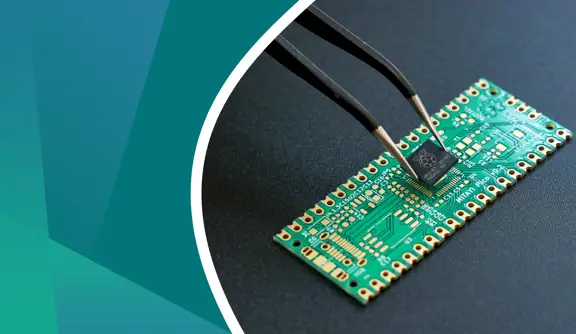See all
No search result found
It looks like we couldn't find any results for your search.
Helpful links

New Funding Opportunities
to the European Chips Ecosystem
The European Chips Act will unlock unprecedented funding to support the semiconductor sector across Europe and be a key opportunity for start-ups, SMEs, large enterprises and RTOs active in the semiconductor and quantum technology space.
About the EU Chips Act
Because of the recent global chips shortage, EU launched the European Chips Act in September 2023. It will mobilise up to EUR 43 billion of public and private investments through 2030 to bolster Europe’s research, technology and industry in semiconductors.
Chips are key assets for many crucial value chains in Europe (automotive, ICT, energy, biomedical, etc.) and by increasing the competitiveness and resilience of the EU semiconductor ecosystem, the Chips Act will also help to achieve the digital and green transition.
Deadline
17 September 2025.
Implemented Through 3 Main Pillars
Each main pillar addresses a different challenge faced by the EU semiconductor ecosystem and access to funding will be routed through Pillar I and II. A wide range of Technology Readiness Levels (from TRL 3 to 9) will be targeted across the Chips' value chain.

PILLAR I – FUNDING FOR R&I AND SMEs
Calls related to Pillar I are expected to open in Q2 2024 and will consist of two main instruments:
1. Chips Joint Undertaking (JU)
The expected overall funding is €11 billion. It will encompass Research and Innovation Actions (RIA), Innovation Actions (IA) and Coordination and Support Actions (CSA). Consortia composed by RTOs, SMEs, LEs, universities can apply.
2. The Chips Fund
A novel instrument for blended finance supported by the European Innovation Council (EIC) and the European Investment Bank (EIB). Start-ups, scale-ups, SMEs, small mid-caps can apply.
Supported Technologies
The Chips for Europe Initiative will cover the following thematic challenges:
* Cloud-based virtual design platforms
* Leading-edge process technology at 2nm and below
* Scaled FD-SOI down to 10nm and below
* Heterogeneous system integration
* Quantum chips design libraries
* Cleanrooms and foundries for quantum chips prototyping and production
* Quantum chips testing and validation.

PILLAR II – EC CERTIFICATIONS
Large enterprises with high operational maturity and plans to bring microelectronics factory at the forefront of the chips industry in EU can apply.
Pillar II will create a streamlined platform to access investment for new or upgraded manufacturing facilities with the goal to increase the resilience of the entire EU Chips value chain and through the support of State-Aid mechanisms. These facilities should support innovative production processes, not yet present in EU today.
To receive support from State-Aid mechanisms, enterprises will be required to hold an official EC certification as “first-of-a-kind” facilities, under two possible labels:
* Integrated production facility (IPF): Vertically integrated facilities involved in the whole manufacturing chain.
* Open EU foundry (OEF): Facilities which dedicate part of their production capacity to manufacture chips for fabless companies (i.e. only focusing on chips design).
The status of IPF or OEF also entitle certified companies to a streamlined priority access to the pilot lines set up under the Pillar I.





